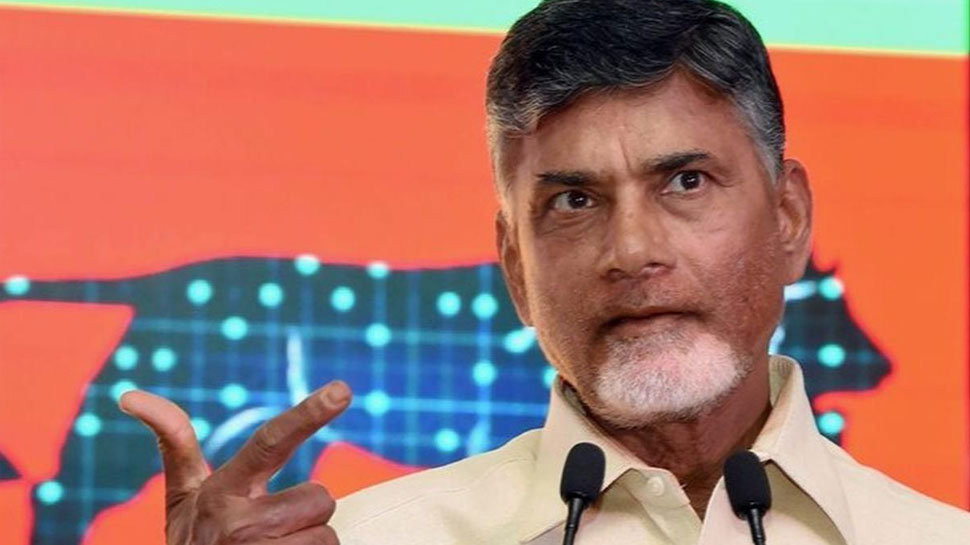
Crisis brewing in TDP as Kapu leaders may quit party en masse

After suffering a humiliating drubbing in the Lok Sabha elections, the Telugu Desam Party (TDP), headed by N Chandrababu Naidu, is now grappling with an existential crisis. Having already lost four of its six Rajya Sabha (RS) MPs, including Naidu’s decades-old confidants Sujana Choudary and CM Ramesh, there are reports of a possible mass exodus of leaders from the influential Kapu community.
As part of its ‘Look South’ mission, the BJP has stepped up efforts to woo TDP leaders, particularly from Kapu and Backward Classes communities, into its fold and occupy the opposition space in Andhra Pradesh.
Signalling a fresh crisis, several senior leaders chose to stay away from a crucial party meeting convened by Naidu in Vijayawada on Tuesday (August 13). The meeting was held to take stock of the political situation and review organisational matters.
Prominent among those absent were Vijayawada MP Kesineni Nani, former Union minister P Ashok Gajapathi Raju, senior legislator and chairman of the Public Accounts Committee (PAC) P Keshav, former state ministers Ganta Srinivasa Rao and Y Ramakrishnudu and former MP J C Diwakar Reddy.
This has triggered speculation over fresh round of desertions from the party.
More trouble brewing
Adding to the party’s woes, its deputy floor leader in the Andhra Pradesh Assembly G Buchaiah Chowdary set off ripples in the party circles by announcing that he would quit the post. The six-time MLA from Rajahmundry is reportedly sulking over “white elephants” in TDP being rewarded plum posts. He also made it clear that he would not contest the next elections.
Choudary, who has been with the regional party since its inception in 1982 and served as minister in the past, blamed senior party leaders and district in-charges for the party’s rout at the hustings.
He lambasted the party leadership for encouraging those who had lost elections several times in the past. Without naming them, Chowdary said, “They have become white elephants and unless they are dropped, the party cannot survive. It is time seniors should make way for younger generation of leaders.”
“Our party president (Chandrababu Naidu) encouraged a selected few and rewarded them with key posts whereas present Chief Minister (Jagan Mohan Reddy) is encouraging only genuine party workers. That is the difference,” the senior MLA said.
Despite harping on a mixed plank of development, welfare, Naidu’s administrative experience and strong leadership, the TDP lost the recent elections, managing to win just 23 seats in the 175-member Assembly and three out of 25 Lok Sabha seats. A resurgent YSR Congress Party, headed by Y S Jagan Mohan Reddy, pulled off a landslide victory while Congress and BJP drew blank both in the Assembly and Lok Sabha.
For Naidu, who had weathered many a storm in his four decade long political career, this is the toughest crisis.
Kapu leaders’ coup?
Following the party’s drubbing, the TDP leaders from the influential Kapu community have been holding informal parleys to chalk out their future action plan. The Kapu community accounts for nearly 17% of the state’s population.
A split in the community’s vote in the recent elections, because of the presence of actor-turned-politician Pawan Kalyan’s Jana Sena Party (JSP) in the poll fray, had benefited Jagan’s YSRCP.
Several prominent Kapu leaders in the TDP are said to be preparing to cross over to the BJP and have been in touch with the state BJP president K Lakshminarayana, himself a popular Kapu leader.
A former TDP MLA Thota Thrimurthulu has taken the lead in mobilising party leaders from the community to formulate a common strategy. The leaders from East Godavari and West Godavari, the Kapu-dominated districts, held a series of meetings at Kakinada where it was felt that BJP could be their best bet as it held out ‘bright future’ in the state.
Target Lokesh
The Kapu leaders targeted the TDP chief’s son Nara Lokesh, who is also the party’s general secretary, and held him responsible for the poor show.
Lokesh’s autocratic style of functioning, growing casteist tendencies, lack of inner democracy and the raw deal meted out to the loyal workers were the factors responsible for the TDP’s rout, they felt.
“It is possible that the TDP here will encounter a situation similar to the one being faced by the Congress in Telangana. A political vacuum created by the possible exodus from TDP will give enough space for the BJP to launch itself as a viable alternative,” says senior political analyst G Nagaraja.
Andhra Pradesh is known for strong caste loyalties. However, only a few influential communities like Kamma and Reddy have been controlling the levers of political power. There is a possibility of BJP targeting some of the ‘ignored’ communities and attempting a social engineering experiment of the kind that it successfully implemented in the Uttar Pradesh Assembly elections.
BJP’s strategy
“We will take Jagan’s help to further weaken our common rival TDP. In any case, Congress is no force at all. The entire Congress cadre has since migrated to YSR Congress. Over the next couple of years, the TDP will be completely neutralised,” the BJP sources said, revealing the saffron party’s strategy for the state.
Promising protection from possible harassment from the YSRCP regime, the lower level TDP leaders would be lured into the BJP camp. Though a senior minister in the Naidu cabinet had approached the BJP leadership soon after his party’s loss in the April elections, he was asked to wait for some more time.
“We have a clear timeline for poaching. After a couple of years, some second rung TDP leaders, former MPs, former Ministers and ex-MLAs will be encouraged to switch loyalty,’ the sources said.
The names of senior TDP leaders like J C Diwakar Reddy, Paritala Sunitha and Kesineni Nani are doing the rounds.
A strong network of RSS and other Sangh Parivar organisations, particularly in the Visakhapatnam-Rajahmundry belt, would play a key role in expanding the base and occupying the opposition space.


